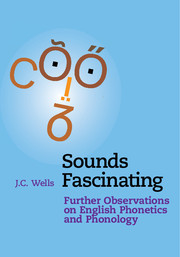19 - Rhetoric
from PART IV - ROUNDUP
Published online by Cambridge University Press: 05 September 2016
Summary
Presentation Techniques
I generally enjoy attending academic conferences and lecturers by visiting speakers at my own university. Some talks, however, are not so good. It's not that what the lecturer says isn't interesting or important: it's that their presentation technique leaves much to be desired.
• Sometimes a speaker starts “Good morning – um – ” and the whole talk is punctuated with distracting hesitation noises.
• Some speakers do not know how to use a microphone properly, with the result that they are largely inaudible.
• Some struggle with their PowerPoint or other displays, crowding too much material onto a single slide or displaying a slide for such a short time that the audience cannot take it in.
• Some conference speakers have problems with pacing, so that by the time the chair warns them that time is nearly up they have still not got to their main point.
• Some make no eye contact with the audience, and are thus unable to react to body-language feedback.
• The key failure is usually that many people just read out a prepared text. This is almost never a good idea. If you are following a verbatim written script you can't easily speed up or slow down to fit the allotted time, you don't get eye contact with the audience, and you usually read too fast. You may emphasize the wrong words. You stumble and can recover only by going back to the beginning of the sentence. (It is true that actors, broadcasters and the clergy do often speak from a prepared script and may do it very well. But it's clearly a skill that many people lack unless explicitly taught.)
I really wonder how some conference speakers can function as professional lecturers and teachers.
I think that we phoneticians can in general congratulate ourselves on being good public speakers. If only that were true of everyone who speaks in public!
I Can't Help It: It's Just the Way I Am
Are phoneticians born or made? Is phonetic skill innate, or must it be acquired by training?
At UCL the cognitive neuroscientist Sophie Scott has carried out research comparing the brain function of a group of trained phoneticians with that of a matched control group of non-phoneticians.
- Type
- Chapter
- Information
- Sounds FascinatingFurther Observations on English Phonetics and Phonology, pp. 191 - 193Publisher: Cambridge University PressPrint publication year: 2016

